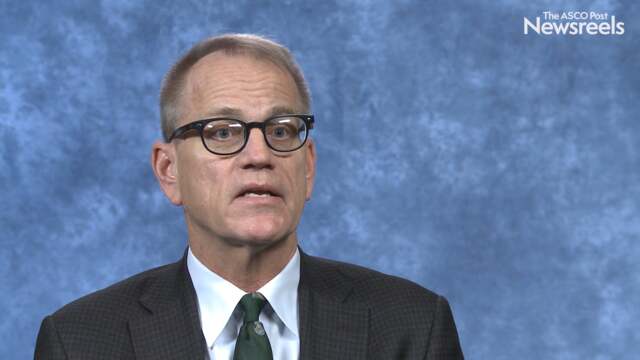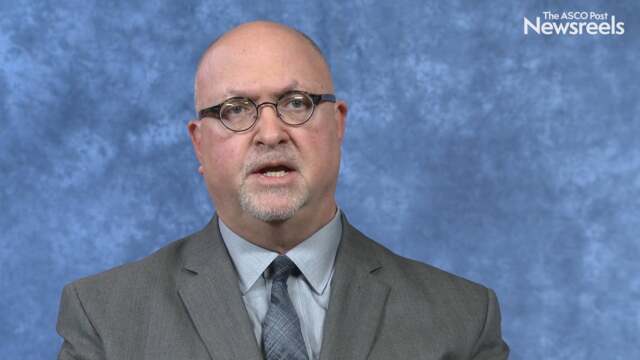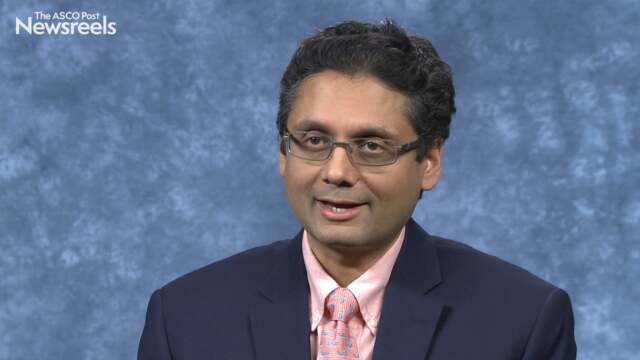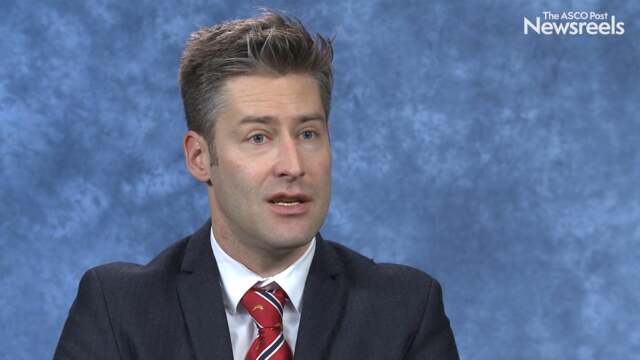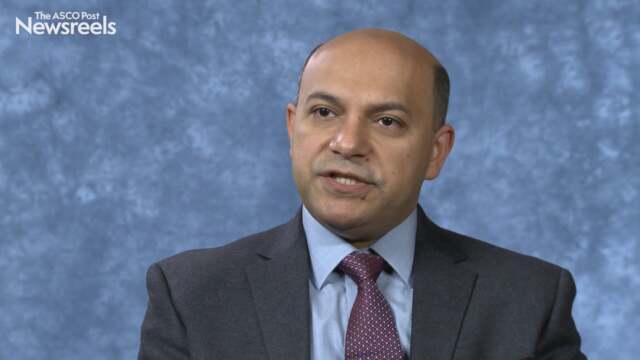Thierry André, MD, and Michael J. Overman, MD, on Colorectal Cancer: Results From Two CheckMate-142 Trials
2018 Gastrointestinal Cancers Symposium
Thierry André, MD, of Hôpital Saint-Antoine, and Michael J. Overman, MD, of The University of Texas MD Anderson Cancer Center, discuss findings from their respective CheckMate-142 studies on nivolumab and ipilimumab in patients with DNA mismatch repair–deficient/microsatellite instability–high metastatic colorectal cancer (Abstracts 553, 554).
Steven D. Leach, MD, of Dartmouth University’s Norris Cotton Cancer Center, discusses the personalized approach that GI cancers will require to make rational use of immunotherapy—including a subset of pancreatic cancers, which appear to be highly immunogenic and are associated with long-term survival.
David H. Ilson, MD, PhD, of Memorial Sloan Kettering Cancer Center, discusses the merits of preoperative chemotherapy vs chemoradiotherapy, the role of targeted agents, recent results from genomic profiling, and whether PET scans can guide neoadjuvant treatment.
Manish A. Shah, MD, of Weill Cornell Medicine, discusses phase III study findings on cisplatin plus capecitabine or fluorouracil with or without ramucirumab as first-line therapy in patients with metastatic gastric or gastroesophageal junction adenocarcinoma (Abstract 5).
Pieter van der Sluis, MD, PhD, of the University Medical Center Utrecht, discusses study findings that compared robot-assisted minimally invasive thoracolaparoscopic esophagectomy vs open transthoracic esophagectomy for resectable esophageal cancer (Abstract 6).
Basem Azab, MD, of the Sylvester Comprehensive Cancer Center, University of Miami, discusses the impact on overall survival when more than 2 months elapse between finishing neoadjuvant therapy and undergoing esophagectomy (Abstract 2).
